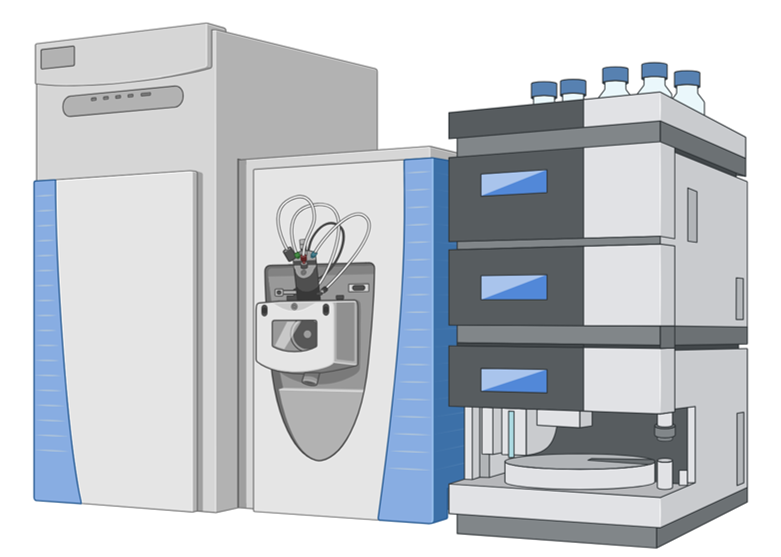We recently connected with Weikai Cao and have shared our conversation below.
Weikai, looking forward to hearing all of your stories today. Can you share a story with us from back when you were an intern or apprentice? Maybe it’s a story that illustrates an important lesson you learned or maybe it’s a just a story that makes you laugh (or cry)?
In the summer of 2023, I completed an internship at Genentech, a pioneering biotechnology company. At Genentech, I led a research and development project focused on the removal of sodium dodecyl sulfate (SDS) from biological analytes. SDS is widely used in biological sample preparation but poses significant challenges to liquid chromatography–mass spectrometry (LC-MS), an essential bioanalytical tool in all stages of drug development. Even small amounts of SDS can cause column overpressure in liquid chromatography columns and signal reduction in mass spectrometry, severely compromising bioanalytical sensitivity and performance.
The project I led directly addressed this common bioanalytical challenge by developing a novel method to effectively remove SDS from samples. This solution not only increased throughput but also reduced the cost for bioanalysis. Specifically, it allows the SDS to be removed from 96 samples simultaneously. Its price is only ~10% compared to commercial SDS-removal cartridges. Moreover, this technique was successfully applied to a sensitive and quantitative assay of monoclonal antibodies in mouse serum, facilitating accurate protein quantitation even in samples containing SDS.
The innovation in high-throughput SDS removal and assay development has critical implications for drug development, particularly in the preclinical, clinical, and quality control stages. By solving a common challenge in protein analysis, this advancement enhances the overall efficiency of drug development processes, promoting both technological innovation and public health. This experience further demonstrates my ability to develop state-of-the-art solutions to bioanalytical challenges, making me continue contributing to the advancement of biotechnology and pharmaceutical development in the United States.

Weikai, love having you share your insights with us. Before we ask you more questions, maybe you can take a moment to introduce yourself to our readers who might have missed our earlier conversations?
I pursued my current career in developing state-of-the-art LC-MS tools to support drug development after recognizing the life-saving potential of drug discovery. Emerging human diseases require the development of protein drugs with new modalities, such as glycosylation. Protein glycosylation is important to understand protein-protein interaction, thus of great interest to pharmaceutical industry. However, characterizing the new modalities of protein drugs presents significant challenges for LC-MS, such as low-throughput and inefficiency.
During my PhD, I invented a spin column that greatly enhanced the efficiency of protein glycosylation analysis by LC-MS. This innovative tool not only reduces the preparation time to mere seconds but also replaces a series of labor-intensive procedures traditionally required for glycosylation analysis. Importantly, this spin column is designed to be easily accessible for widespread use in laboratories, with the potential to streamline glycosylation analysis in drug development labs nationwide. The spin column has already been successfully applied to the glycosylation analysis of therapeutic proteins, a critical quality attribute required by the Food and Drug Administration (FDA).
In summary, my work significantly improves drug quality control, accelerates glycosylation analysis, and advances therapeutic protein development, aligning with the growing demands of biotechnological innovation in the United States.
Other than training/knowledge, what do you think is most helpful for succeeding in your field?
Curiosity is key to success in the drug development field. The drug development process involves collaboration across many departments within an organization. To effectively support this process, we must stay curious about the work of others, both downstream and upstream of our own. Understanding the roles of colleagues throughout the company allows us to better position ourselves and identify how we can contribute to streamlining the overall development process.
In addition, as technology rapidly evolves, staying informed about the latest advancements is essential to avoid falling behind. I cultivate this curiosity by regularly reading updated journal articles, attending research conferences, and catching up with the latest bioanalytical techniques. I encourage others to develop a habit of continual learning—remain curious about new developments, explore emerging technologies, and never stop asking questions.
If you could go back in time, do you think you would have chosen a different profession or specialty?
My answer is a resounding “Yes.” Biologics analysis by LC-MS is incredibly fulfilling for me—it feels like solving a complex puzzle. Given the powerful capabilities of LC-MS in biologics analysis, my work is critical at every stage of drug development, from preclinical to clinical research. Today, many diseases still lack effective treatments, impacting countless lives. My role in developing drugs with new modalities plays a significant part in addressing these unmet medical needs, making the treatment of previously undruggable diseases possible.
Image Credits
BioRender


